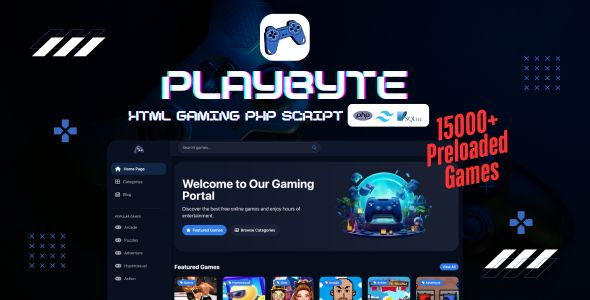
Level Up Your Fun: Exploring the World of HTML Games
Remember the days of simple online games that kept you entertained for hours? Chances are, many of those were built using HTML, CSS, and JavaScript! While dedicated game engines like Unity and Unreal Engine dominate the AAA gaming scene, HTML game development offers a surprisingly accessible and powerful platform for creating engaging and playable games directly in the browser.
Why HTML Games?
So, why choose HTML for game development? Here are a few compelling reasons:
- Accessibility: HTML games run directly in web browsers, eliminating the need for downloads or installations. This makes them incredibly accessible to a wide audience.
- Cross-Platform Compatibility: If a device has a web browser, it can likely play an HTML game. This cross-platform compatibility is a huge advantage.
- Ease of Development (Relatively Speaking!): While game development is never truly easy, the barrier to entry for HTML game development is lower than with many other platforms. The core technologies – HTML, CSS, and JavaScript – are widely known and have extensive online resources.
- Rapid Prototyping: HTML is excellent for quickly prototyping game ideas. You can get a basic game loop and mechanics running relatively quickly.
- Open Source Ecosystem: The web development world thrives on open-source libraries and frameworks. Many excellent JavaScript game libraries can accelerate development and provide pre-built functionality.
Popular Technologies and Frameworks
HTML game development leverages several key technologies:
- HTML5: Provides the structure and elements of the game, including the
<canvas>element, which is often used for drawing graphics. - CSS3: Handles the styling and visual presentation of the game elements.
- JavaScript: The workhorse of HTML games. It controls game logic, user input, animation, and everything else that makes the game interactive.
Several JavaScript frameworks and libraries can streamline the development process:
- Phaser: A popular 2D game framework that provides a wide range of features, including physics engines, animation tools, and input management.
- Babylon.js: A powerful 3D game engine for creating browser-based 3D games.
- Three.js: Another popular JavaScript library for creating 3D graphics in the browser. While not strictly a game engine, it's often used for game development.
- PixiJS: A fast 2D rendering library that's well-suited for creating visually appealing games.
Challenges and Considerations
While HTML game development offers many advantages, it's important to be aware of the challenges:
- Performance: Browser-based games can sometimes suffer from performance limitations, especially when dealing with complex graphics or large amounts of data. Optimization is crucial.
- Security: HTML games are susceptible to client-side manipulation. Protecting game data and preventing cheating can be challenging.
- Limited Access to Hardware: Compared to native game development, HTML games have limited access to hardware features.
- Debugging: Debugging JavaScript can sometimes be tricky. Using browser developer tools effectively is essential.
Examples of HTML Games
You might be surprised at the variety of games that can be created with HTML:
- Simple Arcade Games: Classic arcade games like Tetris, Snake, and Pac-Man can be recreated effectively in HTML.
- Puzzle Games: HTML is well-suited for puzzle games like Sudoku, crosswords, and match-3 games.
- Platformers: 2D platformers can be created using HTML and JavaScript game frameworks.
- Simple RPGs: While complex RPGs might be better suited for other platforms, simple RPGs with turn-based combat can be developed in HTML.
- Educational Games: HTML games are a great way to create engaging educational content.
Getting Started
Ready to dive in? Here's a basic outline to get you started:
- Learn the Basics: Make sure you have a solid understanding of HTML, CSS, and JavaScript.
- Choose a Framework (Optional): Explore different JavaScript game frameworks and choose one that fits your needs and preferences. Phaser is a good starting point.
- Set Up Your Development Environment: You'll need a text editor and a web browser.
- Start Small: Begin with a simple project, like a basic game of Pong or a simple puzzle game.
- Follow Tutorials: Numerous online tutorials and resources can guide you through the process of creating HTML games.
- Experiment and Iterate: Don't be afraid to experiment with different techniques and iterate on your game design.
The Future of HTML Games
HTML game development continues to evolve. With advancements in browser technology and the development of powerful new frameworks, the possibilities for creating compelling browser-based games are constantly expanding. So, why not give it a try and level up your web development skills while creating something fun?
